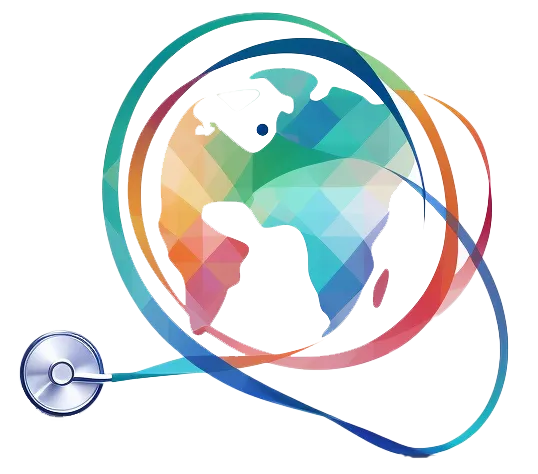In an era where the complexities of the human mind are progressively unfolding, the domain of mental health has become a pivotal area of research, discourse, and innovation. This exploration ventures through recent, groundbreaking breakthroughs in the field, unveiling a new epoch where science, technology, and intellect converge to sculpt the future of mental wellness.
1. Pioneering Neural Interface Systems
In the pulsating arena of neuroscience and engineering, a nascent technology has surfaced that unearths a revolutionary avenue to understand and interact with the neural circuitry of the brain.
a. Interfacing with Thoughts
The inception of Brain-Computer Interfaces (BCIs) has empowered scientists and medical experts to decipher neural activities in unprecedented ways, paving the way for enhancing cognitive function and treating neurological discrepancies.
b. Potential and Prospects
BCIs possess the astonishing potential to facilitate communication for individuals with impaired motor function, enabling them to interact with external devices through mere thought processes.
2. The Advent of Psychedelic Therapy
While once shrouded in controversy and skepticism, the therapeutic use of psychedelics is progressively illuminating new pathways in mental health treatment.
a. Harnessing Hallucinogens
In a paradigm where traditional pharmacological interventions have been met with varied success, the infusion of controlled psychedelic experiences, under professional supervision, is manifesting promising outcomes in treating disorders such as depression and PTSD.
b. Mechanisms of Action
Psychedelic compounds, such as psilocybin, impact serotonin receptors in the brain, inducing states of altered consciousness that can catalyze profound changes in mood, perception, and thought.
3. Personalized Psychiatry through AI and ML
In an era spearheaded by technological advancements, Artificial Intelligence (AI) and Machine Learning (ML) are sculpting an individual-centric approach in psychiatric care.
a. Predictive Analytics in Mental Health
By scrutinizing extensive datasets and discerning patterns through ML algorithms, professionals are now empowered to predict and pre-empt mental health crises with augmented precision.
b. Tailoring Treatments
AI platforms, enriched with vast psychological and medical data, can formulate individualized treatment regimens, ensuring that therapeutic interventions are more aligned with the unique genetic, physiological, and psychological makeup of each patient.
4. Neurostimulation Techniques: A New Hope for Mental Health Ailments
In the quest to remedy and potentially alleviate mental disorders, scientists have galvanized an emergent strategy by pioneering innovative neurostimulation methods.
a. Transcranial Magnetic Stimulation (TMS)
In the domain of non-invasive interventions, TMS has ascended as a promising tool, particularly in treating depressive disorders, by employing magnetic fields to modulate neural activity in specific regions of the brain.
b. Deep Brain Stimulation (DBS)
DBS, involving the implantation of electrodes within certain brain regions, has unfurled a spectrum of possibilities in mitigating the severity of symptoms associated with various mental health conditions, such as obsessive-compulsive disorder.
c. Tailoring Neuromodulation Techniques
Through extensive research and technological refinement, bespoke neurostimulation protocols are being sculpted, aiming to target the distinctive neural substrates that underpin different mental health disorders, thereby enhancing therapeutic efficacy.
5. Genomic Insights in Mental Health Management
In an epoch where genetics and biotechnology are propelling medical advancements, the role of genomics in comprehending and managing mental health has become paramount.
a. Genetic Profiling and Risk Assessment
Through intricate genomic analyses, a comprehensive understanding of the genetic factors influencing mental health vulnerabilities and resilience can be attained, paving the way for preemptive strategies and personalized therapeutic interventions.
b. Pharmacogenomics: A Personalized Medication Approach
Pharmacogenomics explores the intricate interplay between an individual’s genetic makeup and their response to medications, thereby facilitating the development of personalized drug regimens that optimize efficacy and mitigate adverse effects.
c. Ethical and Social Implications
While genomic insights bear the potential to revolutionize mental health care, they concurrently usher in ethical dilemmas and social considerations, such as privacy, consent, and potential stigmatization, necessitating a meticulous, ethically-informed approach to genomic psychiatry.
Conclusion: The Horizon of Mental Health Innovations
As we transcend through an era where technological and scientific advancements are meticulously intertwining with the profound intricacies of the human mind, a new dawn in mental health care is being sculpted. These breakthroughs, while revolutionary, necessitate continual research, ethical contemplation, and an unwavering commitment to enhancing the wellbeing of individuals navigating through the complexities of mental health conditions. The confluence of technology, science, and empathy unveils a future where mental health care is not only advanced but is also inherently compassionate and individual-centric.

